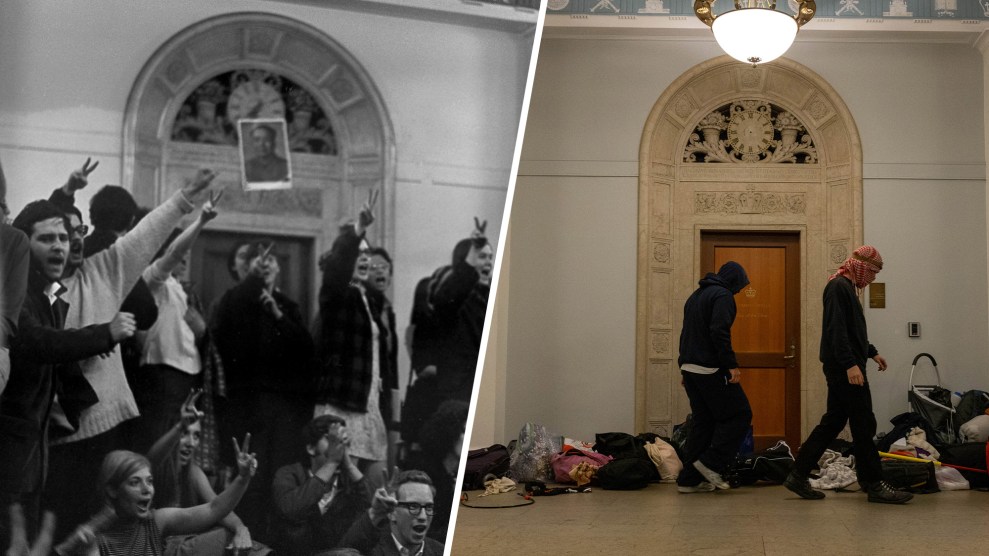George W. Bush came into office with immigration reform at the top of his agenda; then came Sept. 11, and the issue dropped out of sight. Now, with the general election approaching, the question of what to do about America’s massive population of illegal immigrants has resurfaced. On Tuesday the president unveiled a proposal to give work visas of indeterminate length to millions of so-called “undocumented workers.” Many congressional conservatives say the plan, effectively an amnesty for illegals, rewards law-breaking, and they promise to give it a rough ride. But whether or not it passes, Bush is calculating that his proposal will win him the goodwill — that is, the votes — of Latinos.
The new “temporary worker program” would allow some of the nation’s approximately 10 million undocumented workers (60 percent of whom are estimated to be Mexicans) who hold jobs to receive permits allowing them to work legally for an unspecified period of time. It would also allow workers outside the U.S. to be matched up with domestic employers — potentially giving employers significant power over their temporary employees. Workers could travel freely between their home country and the U.S., and apply for permanent residency.
In his announcement, the President explained that America has always been a source of employment for immigrants. “Out of common sense and fairness, our laws should allow willing workers to enter our country and fill jobs that Americans are not filling,” he said.
Critics say the proposal amounts to a mass amnesty program rewarding illegal behavior. “If it’s truly an amnesty program, it’s dead on arrival” said Rep. Elton Gallegly (R-Simi Valley). “Even those of us who strongly support George W. Bush don’t agree with him on every issue. I wasn’t elected to be a rubber stamp.”
Latinos account for 13 percent of the population, and 7 percent of the electorate — many of whom polls have shown to define themselves as politically independent. Although it is doubtful Congress will make any progress on the proposal in the near future, the president’s efforts could pay off for his campaign. In 2000 Bush won 35 percent of the Hispanic vote. Advocating for mass amnesty could greatly increase his popularity, whether the plan passes Congress or not.
In a Wednesday debate between Pat Buchanan and Rep. Loretta Sanchez, Democrat of California on NBC, Buchanan accused the president of poltically-motivated concessions.
“The president of the United States is making a concession in order to win Hispanic votes. … He cannot or will not do his duty to enforce the immigration laws of the United States and to protect the borders of the United States.”
But Sanchez made the familiar, and accurate, argument that the labor market requires immigrants to work in jobs many Americans are unwilling to do.
“While there are many unemployed in the United States, the fact of the matter is there are a lot of sectors that go begging for people to come and do those jobs, and we’ve seen so many come to us and say, ‘We need to get some status for these people because we need them to do those jobs.’ Secondly, it’s a homeland security issue. We need to know who’s here. We have limited amount of resources and we need to target those resources on people who are here to do us harm, not on people who are here working, who are here as part of our community, whose children are probably United States citizens. We need to get a handle on that and to give them status in this country. And it’s also about family reunification. We need to keep those families together instead of deporting pieces of them out of the country.”
(Mark Krikorian of the National Review Online makes the rather startling counterargument that the U.S., far from needing foreign workers, should do away with them, because they put a brake on workplace modernization.)
In the Denver Post, columnist Al Knight argues that since Americans generally don’t support amnesty for those who have broken the law, the president’s proposal might easily backfire politically.
“Bush is apparently intent upon offering some kind of amnesty proposal hidden in a guest worker program.
It won’t work. Any worker program that accepts applications from those currently in this country illegally is likely to unite the opposition, especially in an election year. It is also true that immigration groups will adamantly oppose any program that didn’t accept such applications.”
Even those advocating on behalf of immigrants reacted to Bush’s plan with caution. Many advocates are concerned that “coming out” as an illegal will ultimately increase an immigrant’s chances of being deported when the term of his or her guest visa is up. Cecilia Munoz, vice-president of the National Council of La Raza, told the Guardian that Bush isn’t advocating on behalf of immigrants. “The Latino community knows the difference between political posturing and a real policy debate.”
Illegal immigrants seem impressed, though. The Christian Science Monitor quotes Fernando, an undocumented worker in Houston, as saying, “Everyone is very excited. It would be perfect for so many of us.”















